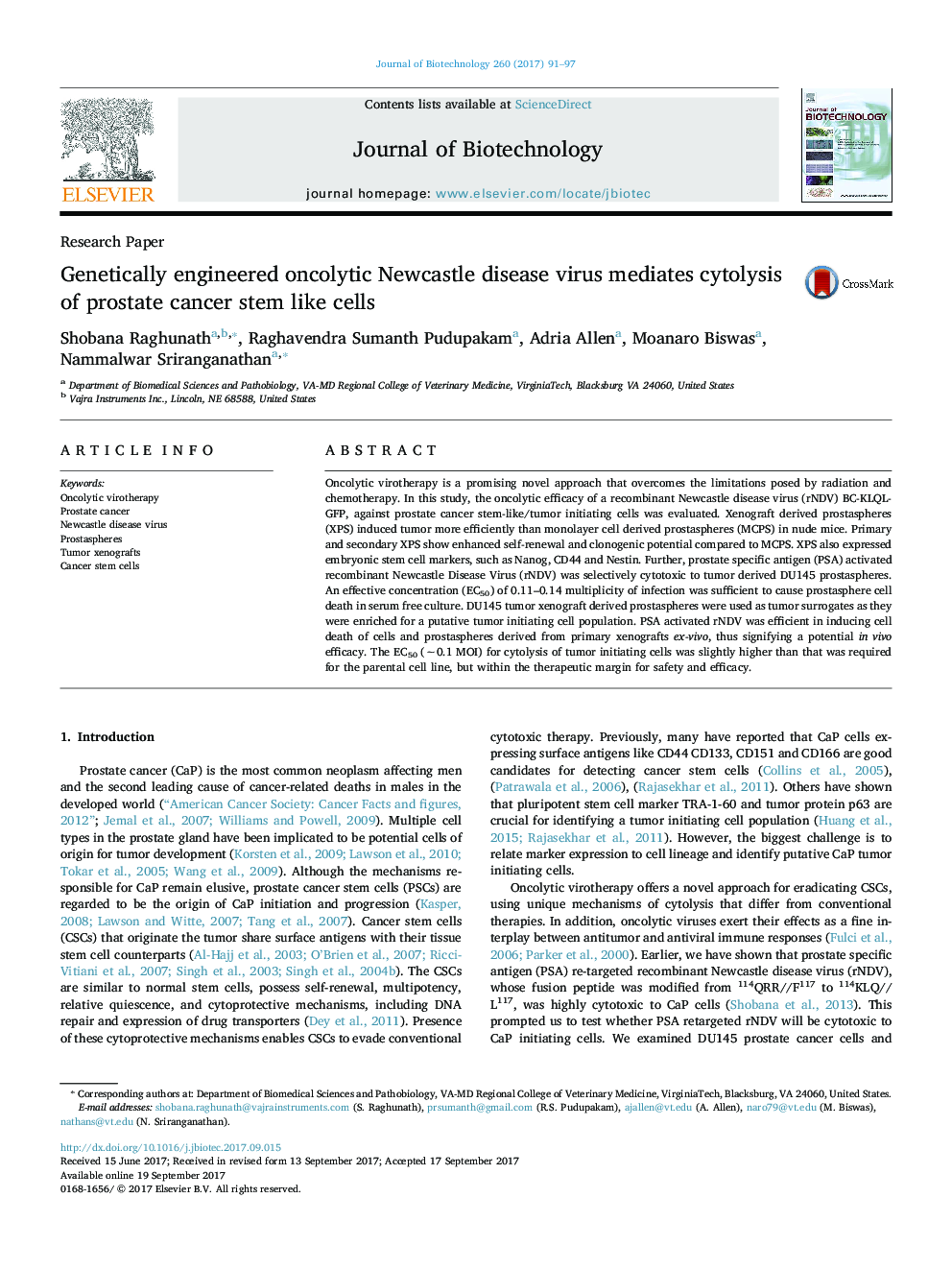| کد مقاله | کد نشریه | سال انتشار | مقاله انگلیسی | نسخه تمام متن |
|---|---|---|---|---|
| 6451824 | 1416983 | 2017 | 7 صفحه PDF | دانلود رایگان |
- We genetically engineered NDV to selectively replicate and kill CaP cells only in the presence of prostate specific antigen (PSA), a chymotrypsin like serine protease secreted in the prostate tumor microenvironment.
- In order to test whether rNDV would also be able to target and lyse CaP-initiating cells, we characterized stem-like populations from an androgen receptor (AR) negative, androgen independent human DU145 cell line and primary tumor xenograft derived prostaspheres (XPS). XPS expressed embryonic stem cell markers, such as Nanog, CD44 and Nestin.
- Xenograft derived prostaspheres (XPS) induced tumor more efficiently than monolayer cell derived prostaspheres (MCPS) in nude mice.
- PSA activated NDV could also undergo multicycle replication in xenograft derived prostaspheres. Virus yield in these spheres were comparable to that in cell line derived prostaspheres.
- Prostate specific antigen (PSA) activated recombinant Newcastle Disease Virus (rNDV) was selectively cytotoxic to tumor derived DU145 prostaspheres. An effective concentration (EC50) of 0.11-0.14 multiplicity of infection was sufficient to cause prostasphere cell death in serum free culture.
- PSA activated rNDV was efficient in inducing cell death of cells and prostaspheres derived from primary tumor xenografts ex-vivo, thus signifying a potential in vivo efficacy.
Oncolytic virotherapy is a promising novel approach that overcomes the limitations posed by radiation and chemotherapy. In this study, the oncolytic efficacy of a recombinant Newcastle disease virus (rNDV) BC-KLQL-GFP, against prostate cancer stem-like/tumor initiating cells was evaluated. Xenograft derived prostaspheres (XPS) induced tumor more efficiently than monolayer cell derived prostaspheres (MCPS) in nude mice. Primary and secondary XPS show enhanced self-renewal and clonogenic potential compared to MCPS. XPS also expressed embryonic stem cell markers, such as Nanog, CD44 and Nestin. Further, prostate specific antigen (PSA) activated recombinant Newcastle Disease Virus (rNDV) was selectively cytotoxic to tumor derived DU145 prostaspheres. An effective concentration (EC50) of 0.11-0.14 multiplicity of infection was sufficient to cause prostasphere cell death in serum free culture. DU145 tumor xenograft derived prostaspheres were used as tumor surrogates as they were enriched for a putative tumor initiating cell population. PSA activated rNDV was efficient in inducing cell death of cells and prostaspheres derived from primary xenografts ex-vivo, thus signifying a potential in vivo efficacy. The EC50 (â¼0.1 MOI) for cytolysis of tumor initiating cells was slightly higher than that was required for the parental cell line, but within the therapeutic margin for safety and efficacy.
Journal: Journal of Biotechnology - Volume 260, 20 October 2017, Pages 91-97
